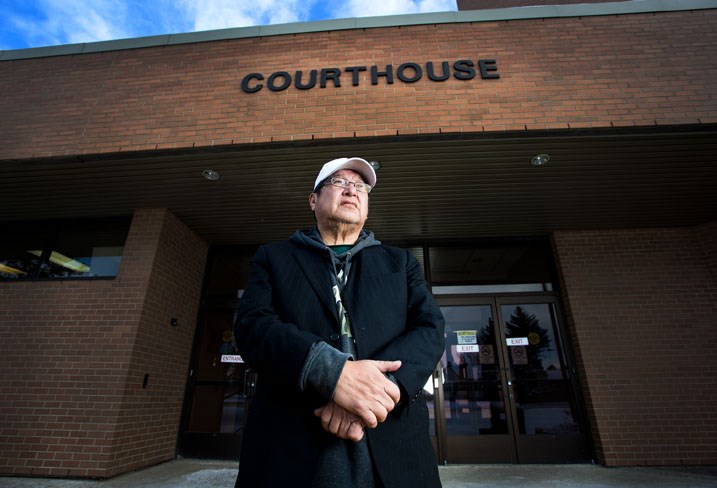CORRECTION
A previous version of this story said that the Northern Alberta Diaconal Conference was affiliated with the United Church. The conference is actually affiliated with the Christian Reformed Church, but is organizing this event to stand with its comrades in the United Church. The Gazette apologizes for the confusion.
Fifty years ago last month, St. Albert’s most infamous school shut its doors for good.
Now, half a century later, survivors shaped by that school are holding a walk to reconcile with this black mark on Canada’s past.
Hundreds are expected at Poundmaker’s Lodge this July 11 to commemorate the closure of the Edmonton Indian Residential School, which once stood on the treatment centre’s grounds. Most will then head to downtown Edmonton for the inaugural Walking On Common Ground Reconciliation Walk.
The event is meant to recognize the 50th anniversary of the school’s closure and is a joint project of Poundmaker’s, the Northern Alberta Diaconal Conference (which is affiliated with the Christian Reformed Church), and the Edmonton Native Healing Centre, said healing centre spokesperson Michelle Nieviadomy.
While the initial plan was to hold a sort of pilgrimage from Poundmaker’s to a church, Nieviadomy said the organizers re-jigged the event to give it more of a community focus.
“We want to walk in a good way with our neighbours while we honour the story and legacy of residential schools.”
Elders, dignitaries, and survivors of the school will hold a formal ceremony at Poundmaker’s at 10 a.m. next Wednesday, Nieviadomy said. At 1 p.m., they’ll join hundreds of others at Canada Place for speeches and some traditional First Nations drumming before staging a walk to the Alberta Legislature.
“This is about community,” Nieviadomy said, and about coming together to enact the Truth and Reconciliation Commission’s calls to action regarding the residential schools.
Student looks back
Canada’s residential school system took at least 150,000 First Nations, Métis, and Inuit children from their home communities in a systematic attempt to exterminate their traditional language and culture, reports the Truth and Reconciliation Commission. The result was generations of Canadian citizens traumatized by physical, mental, and sometimes sexual abuse.St. Albert was home to two such schools: the Youville school on Mission Hill and the Edmonton school, the latter of which operated from 1924 to 1968.
Mel Buffalo, now a court advocate in Maskwacis, said his family sent him to the Edmonton school in 1958-1959 and 1963-1968 in hopes that it would straighten him out. There, he was separated from his sister, beaten with a leather strap whenever he spoke Cree, and made to dig graves for dead Indigenous people, many of whom likely came from the nearby Charles Camsell Hospital.
“I wouldn’t wish it on my worst enemy,” he said of the experience.
At the school, the teachers tried to get students to forget their native language and not be Indigenous, Buffalo said. When you went back home in the summer, others would look down on you for “trying to be a white person.”
“You were caught in between both worlds.”
Buffalo noted that staffers would sexually abuse students at the school – a fact that once led him and a few others to barricade the dorm doors. The RCMP were called in, the abusers fired, and Buffalo expelled (for all of a week).
Buffalo said the experience left him and other students angry at the world. It drove him to alcohol, and drove others to suicide.
The school formally closed on June 30, 1968, reports the United Church of Canada. Its main building burned down on July 16, 2000, but a few of its support structures are still around today.
Buffalo, who said he hoped to attend Wednesday’s walk, said it was important for people to learn this history so that it would never happen again. He noted that U.S. officials were just months ago separating kids from their parents in what he saw as an echo of the residential school experience.
“They’re redoing history, and they’re not even aware of what happens when you do that kind of thing.”
Call Nieviadomy at 780-482-5522 for details on the walk.




